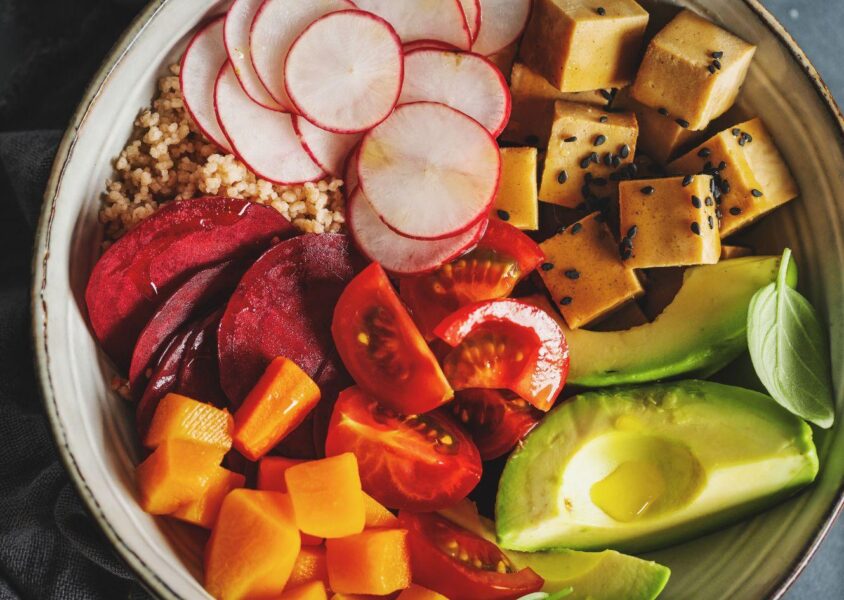Vegan Diet Is More Popular Now

There has been an increase in the popularity of vegan diets in recent years. A vegan diet is a type of plant-based diet that excludes all animal products, including meat, dairy, eggs, and honey. People may follow a vegan diet for various reasons, such as concerns about animal welfare, the environment, or health.
There are many resources for people following a vegan diet, including cookbooks, meal delivery services, and plant-based protein options. Vegan options are also more widely available at restaurants and grocery stores than in the past.
A vegan diet can be a healthy and nutritionally adequate way of eating for people of all ages. It is important to carefully plan a vegan diet to ensure that it provides all the nutrients the body needs. Some nutrients that may concern vegans include protein, iron, calcium, vitamin D, and vitamin B12. These nutrients are found in animal-derived foods, so it’s important for vegans to include sources of these nutrients in their diet. You can also take these as supplements as needed.
Is Vegan Diet Healthy
Here are some tips to ensure that a vegan diet is healthy:
Eat a variety of plant-based protein sources: Vegan protein sources include beans, lentils, tofu, tempeh, nuts, and seeds. It’s important to include various protein sources in your diet. You should ensure that you get all the essential amino acids your body needs.
Include iron-rich foods: Plant-based sources of iron include fortified cereals, beans, lentils, tofu, nuts, and dried fruit. Eating iron-rich foods and foods that are high in vitamin C, such as citrus fruits and vegetables, can help improve iron absorption.
Get enough calcium: Vegan sources include fortified plant-based milk, tofu, almonds, and leafy green vegetables.
Get enough vitamin D: Vitamin D is important for bone health. You find it in very few plant-based foods. Vegan sources of vitamin D include fortified plant-based milk, orange juice, cereals, and sunlight exposure. It’s a good idea to consider taking a vitamin D supplement if you are following a vegan diet.
Get enough vitamin B12: Vitamin B12 is important for nerve function and is found almost exclusively in animal-derived foods. Vegan sources of vitamin B12 include fortified plant-based milk, fortified cereals, and supplements. Therefore, it’s important for vegans to include a reliable source of vitamin B12 in their diet or to take supplements as needed.
If you are considering following a vegan diet, you should consult a healthcare provider or a registered dietitian to ensure that you meet your nutritional needs. They can help you create a well-balanced vegan diet that meets your needs.
Vegan or Vegetarian
Both vegetarian and vegan diets can be healthy and nutritionally adequate ways of eating for people of all ages, including children, adolescents, and pregnant or breastfeeding women, as long as they are well-planned and include a variety of foods. However, there are some key differences between the two diets.
Vegetarian diets exclude meat, poultry, and fish but may include animal products such as dairy and eggs. Vegan diets exclude all animal products, including meat, poultry, fish, dairy, and eggs.
Vegetarian diets may be easier to follow because they allow various food options. However, vegan diets may require more planning to meet all nutritional needs. They exclude several food groups typically good sources of nutrients such as protein, iron, calcium, and vitamin B12.
Both vegetarian and vegan diets can provide many health benefits, such as a lower risk of heart disease, high blood pressure, and certain types of cancer. However, vegan diets may provide additional benefits, such as a lower risk of certain types of cancer and a lower risk of developing type 2 diabetes.
The best diet is the one that meets an individual’s nutritional needs and aligns with their values and preferences.